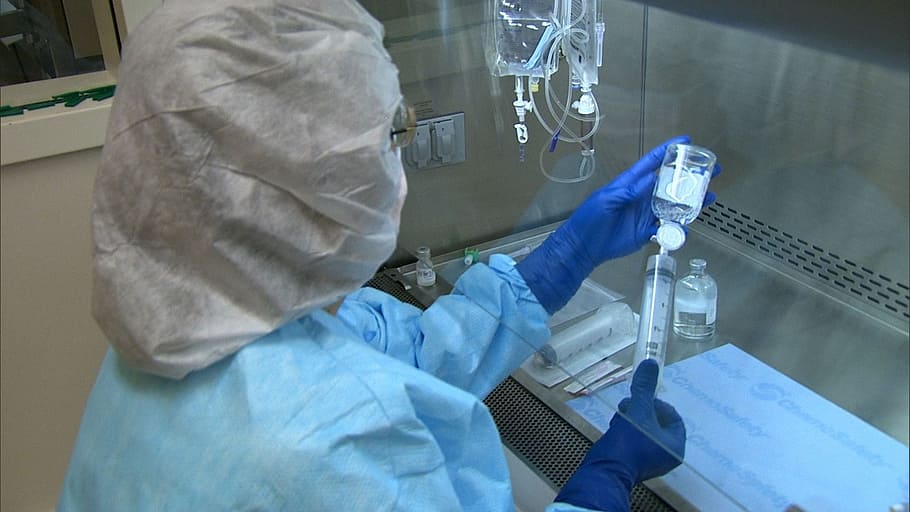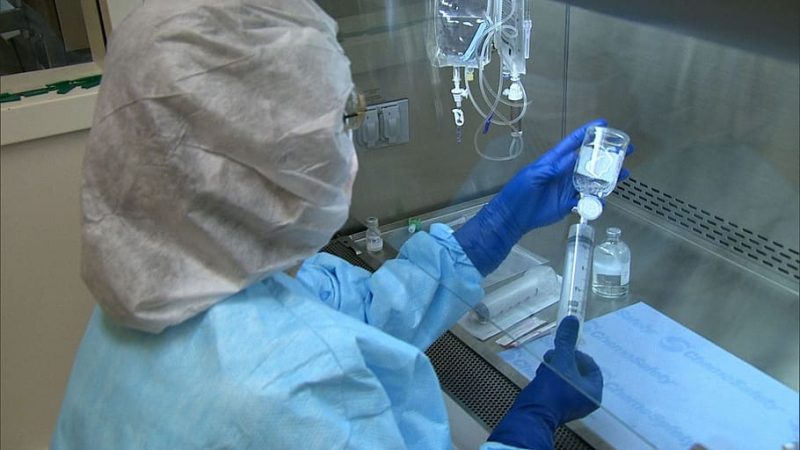Researchers at Laurier trialing antiviral drug found to be effective at blocking two strains of coronavirus


A team of researchers at Wilfrid Laurier University has been developing an antiviral drug aimed at boosting the body’s innate immune response against respiratory infections such as COVID-19.
This drug, code-named AntiV™ during its development, has been shown to boost the body’s natural immune response to viruses such as COVID-19, preventing infection and replication in healthy lung cells for up to two weeks.
The Laurier team, which includes Stephanie DeWitte-Orr, an associate professor of health sciences and biology, postdoctoral fellows Tamiru Alkie and Shawna Semple and Kristof Jenik, a PhD candidate, has been working on this project since May 2020.
In lab conditions, the drug is put onto a nanoparticle, provided by Glysantis Inc., a biotechnology startup in Guelph, which has allowed for a significantly improved deployment of the drug.
“What that does is it puts a lot of stimulant in a very small space, and then we give that to the lung cells, and it’s a really robust inducer of the innate immune response,” DeWitte-Orr said.
Antiviral drugs such as AntiV differ from vaccines in the way that they affect how the body responds to pathogens such as COVID-19. Antivirals affect the innate immune response, and vaccines affect the adaptive immune response.
“The immune system is broken up into two parts: there’s the innate and then there’s the adaptive immune response,” DeWitte-Orr said.
“A vaccine is a piece of the virus, or killed virus … that’s introduced into the body, [which] activates the adaptive immune response to remember the virus. Then, when you’re actually infected with the virus, your adaptive immune response remembers that and kills the virus quickly. That’s a memory response.”
“A drug does not activate memory. A drug is either something that you give before or during an infection to stop [that] infection. So drugs are helpful in instances where there is no vaccine, or where the vaccine is not useful in a certain population, or when a vaccine no longer works within a certain population,” she said.
There are a significant number of applications for this drug, especially in vulnerable populations such as children, the elderly, or immune-compromised individuals.
An antiviral drug that broadly targets the body’s innate immune response means that, unlike other drugs which target specific viruses, or parts of them, this drug will encourage the body’s immune system to do what it does naturally, according to DeWitte-Orr.
“The [other] nice thing about using an innate immune stimulant is that it’s not specific to any virus strain. Because the innate immune response is a general response, it triggers really quickly, and it blocks any virus.”
What this means is that AntiV could potentially be used as a supplementary, preventative treatment for a broad range of coronaviral or other respiratory infections.
Now, the Laurier research team will work with scientists from Winnipeg to develop the next stage of the drug’s research, exposing the drug to SARS-CoV-2, the most common current strain of the coronavirus.
“We’re also creating [three-dimensional] lung cultures, [so] we’re going to be testing the drug in a more natural human lung environment in vitro. We’re also working towards trying the drug in animals—we’ve done a little bit of safety testing in animals, and it’s safe,” DeWitte-Orr said.
“But now, we need to figure out delivery and [look] at dosage and timing in an animal model.”


